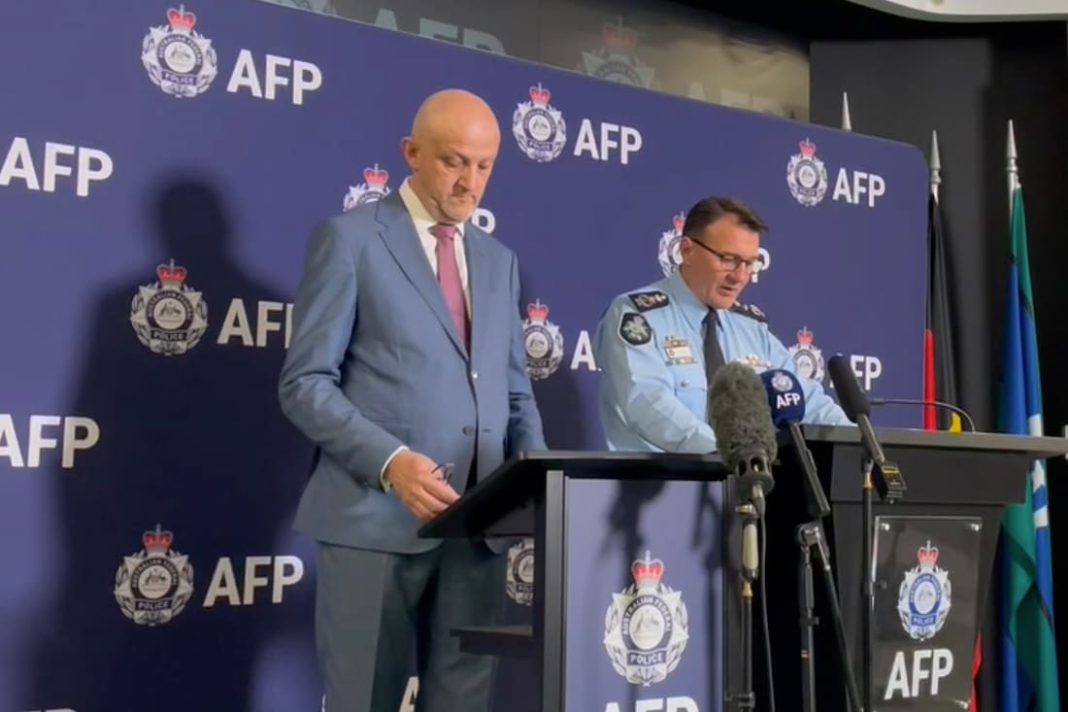A Russian-born Australian army private and her husband have been arrested on espionage charges after allegedly working to steal sensitive defence information.
Australian Federal Police arrested the 40-year-old woman and 62-year-old man, who was a self-employed labourer, in Brisbane on Thursday and they remain in custody ahead of fronting court on Friday.
The army private has worked in the defence force “for several years as an information systems technician”, AFP Commissioner Reece Kershaw said.
The pair had been in Australia for about 10 years and arrived married.
They were working together to obtain the sensitive information, police alleged, but no further details have been given about the woman’s security clearance or the nature of the documents accessed.
The woman travelled to Russia without declaring it to authorities while on long-term leave from the defence force in 2023 and coached her husband to access her official work account, police allege.
She allegedly guided him on how to access specific information and send it to her private email account while in Russia.
The army private remained on leave when she was arrested, police confirmed.
Investigations into whether the information made it into Russian hands were ongoing, police said.
Whether the couple arrived in Australia as Kremlin plants or were cultivated and turned once onshore is still under investigation.
The woman became an Australian citizen in 2016 and her husband in 2020.
ASIO director-general Mike Burgess noted that security clearance vetting wasn’t a panacea amid questions of how the pair who maintained Russian passports were able to access classified information.
“Vetting is not a solution that stops problems,” he told reporters in Canberra on Friday.
“If you meet the requirements to get a security clearance you’ll get a security clearance but that doesn’t mean to say the security journey stops at this point.”
“We will work with defence to work through what is the teachable moment here if there are any.”
The Defence Department took all breaches of security seriously, it said in a statement.
“In response to serious allegations, it is general practice to suspend an ADF member from service, including immediately cancelling the member’s access to Defence bases and ICT systems,” it said.
It wasn’t unusual for defence members to access systems while on leave due to check-in requirements, police say.
No other individuals had been identified at this point and there was no ongoing threat, they added.
The charges relate to a preparation of espionage offence, which carries a maximum sentence of 15 years behind bars, but the higher charge of espionage could be levelled later as more information comes to light.
That carries a maximum sentence of life in prison.
Australian intelligence agencies haven’t named what Russian agency the pair allegedly worked for or when they became aware of the alleged plot as they want to protect their capability.
Mr Burgess warned espionage wasn’t “some quaint, Cold War notion”.
“Foreign intelligence services are capable, determined and patient, they play the long game,” he said.
“The problem for them is ASIO does too … if you’re conducting espionage in this country, we will detect you and we will deal with you.
“This case demonstrates an effective security culture.”
Speaking directly to the Kremlin and its spies on the 70th anniversary of the Petrov affair where Russian intelligence officials defected to ASIO, he said his organisation was always listening.
“If you want to share your secrets, please reach out,” he said.
By Dominic Giannini in Canberra



